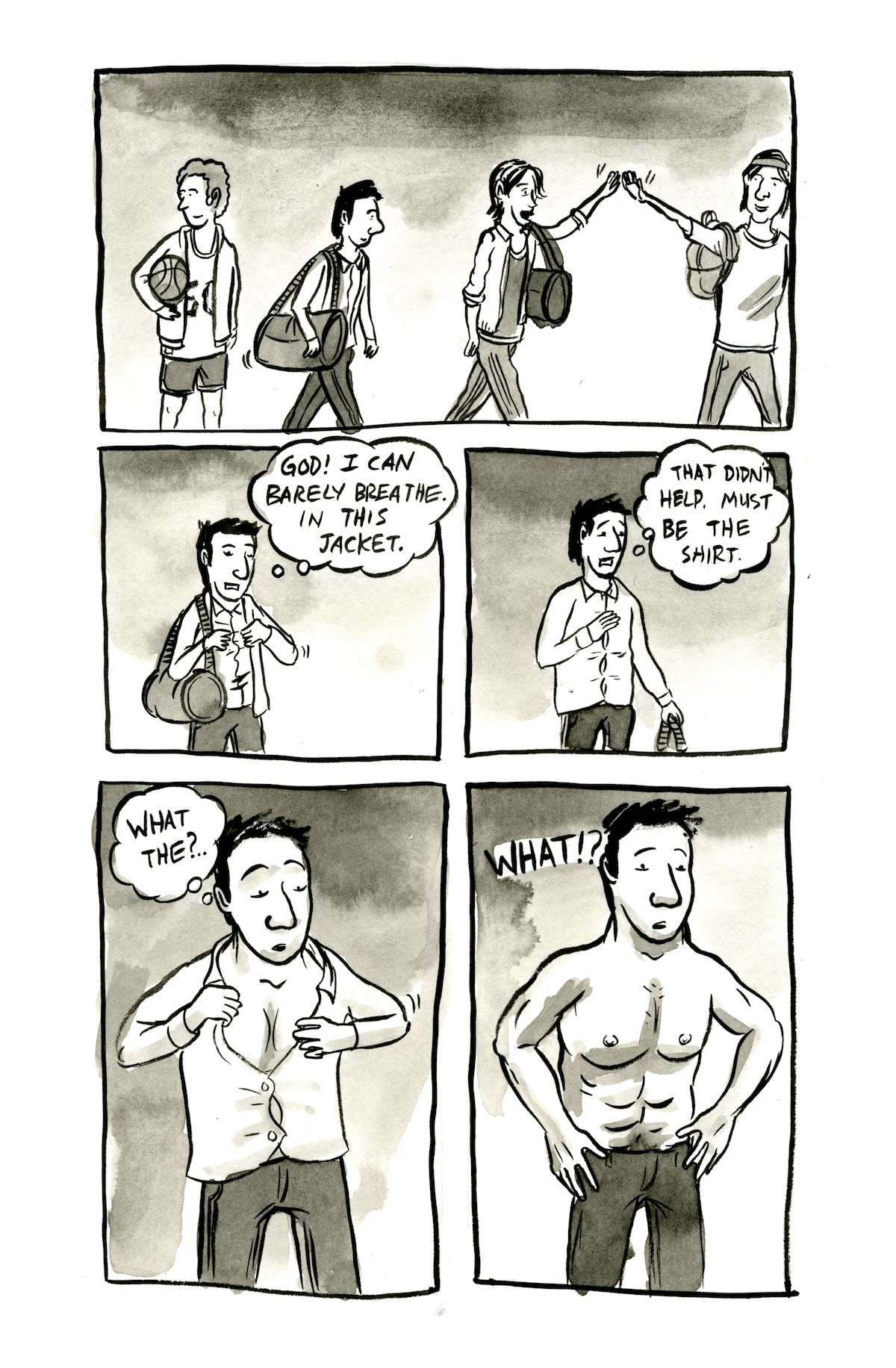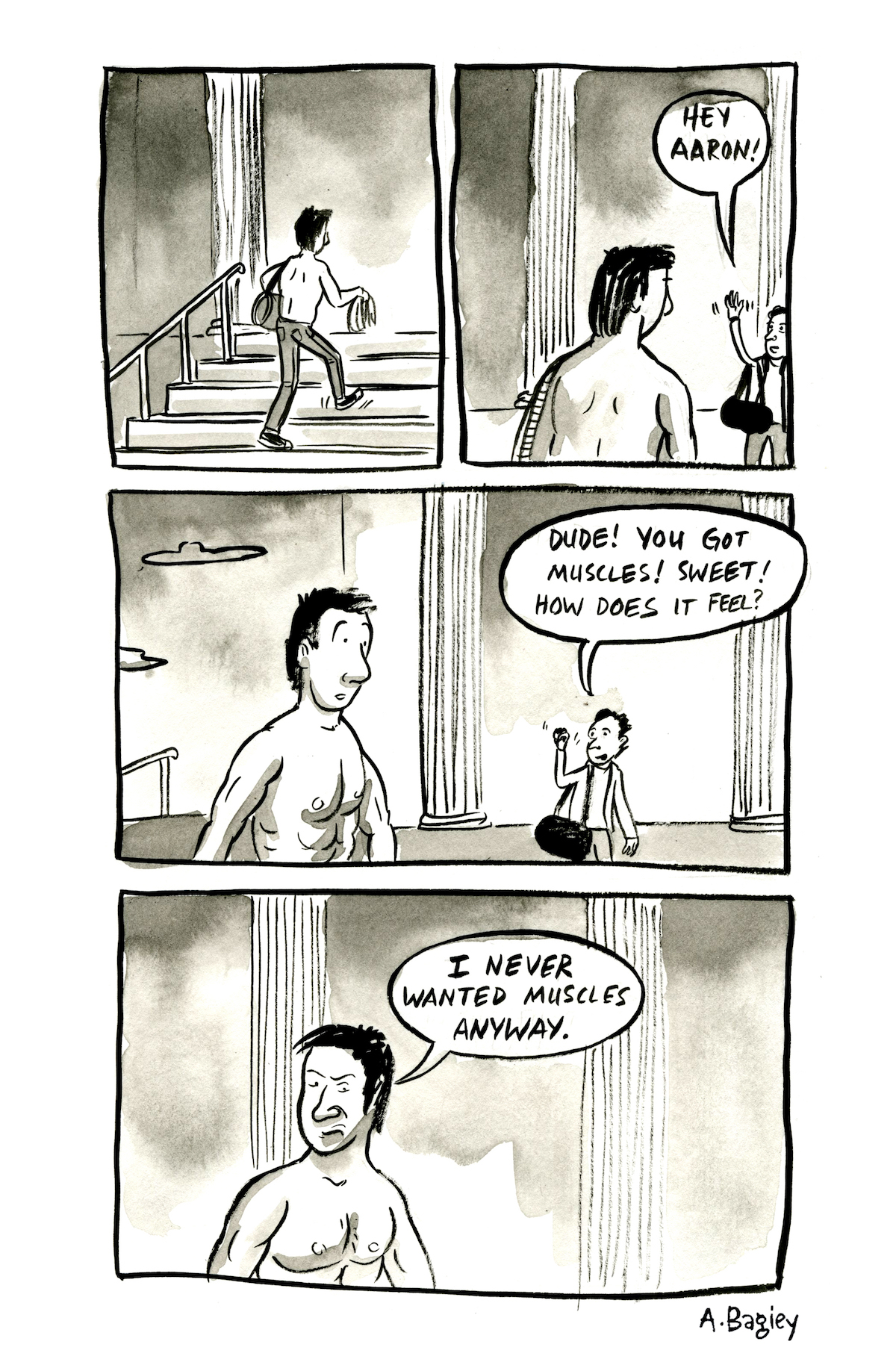From Sydney to Seattle
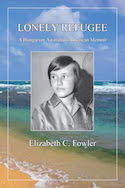
We're doubly grateful to Elizabeth C. Fowler, who's sponsoring for the second time this week. Fowler is a local writer, now, but she grew up in Australia as a Hungarian refugee. Her experience reflects the challenges of historic discrimination and is, as she says, "a most relevant topic today." How she got from there to here — and grew from a lonely young girl into a talented physician with a passionate love for music and nature — is a story worth reading. Reviewers have called Lonely Refugee an "impressive debut" that "strikes a universal chord." Try a sample on our sponsor feature page, provided just for Seattle Review of Books readers.
Sponsors like Elizabeth Fowler make the Seattle Review of Books possible. Did you know you could sponsor us, as well? There are only four slots remaining in 2018, so move quickly to get your stories, or novel, or event in front of our passionate audience. Take a glance at our sponsorship information page for dates and details.
Your Week in Readings: The best literary events from August 20th - August 26th
Monday, August 20: The Art of the Wasted Day Reading
Patricia Hampl's book is a travelogue exploring the life and times of some of the best leisure-seekers in history. One of those rest-experts is credited as the inventor of the personal essay. Elliott Bay Book Company, 1521 10th Ave, 624-6600, http://elliottbaybook.com, 7 pm, free.Tuesday, August 21: Welcome to the Writer's Life Reading
Seattle author Paulette Perlach's new book is subtitled How to Design Your Writing Craft, Writing Business, Writing Practice, and Reading Practice. The publisher describes it as "Like a freshman orientation for writers." Third Place Books Lake Forest Park, 17171 Bothell Way NE, 366-3333, http://thirdplacebooks.com, 7 pm, free.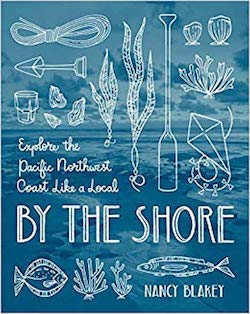
Wednesday, August 22: By the Shore Reading
Nancy Blakey's new book is a one-stop shop for those who are eager to explore the watery parts of the Pacific Northwest, from seafood recipes to kayaking instructions to travel tips to nature guides. Third Place Books Ravenna, 6504 20th Ave NE, 525-2347 http://thirdplacebooks.com, 7 pm, free.Thursday, August 23: Next Exit
This is a celebration of indigenous artists including a number of exciting young bands, as well as the poetry of Sasha LaPointe, Sara Marie Ortiz, and DinéYazhi. Artists from Washington, Oregon, and New Mexico will appear at this event. Henry Art Gallery, UW Campus, 543-2280, http://www.henryart.org/, 6 pm, $12Friday, August 24: A Girl's Guide to Missiles Reading
Karen Piper's memoir is about growing up a Navy brat on an outpost in the Mojave Desert. It's about nuclear terror, evangelical Christians, and Amway. Elliott Bay Book Company, 1521 10th Ave, 624-6600, http://elliottbaybook.com, 7 pm, free.
Saturday, August 25: Seattle Urban Book Expo
See our Event of the Week column for more details. Centilia Cultural Center, 1660 S Roberto Maestas Festival St,973-4298, 1 pm, free.
Sunday, August 26: Surreal Storytelling with Strange Women
This event features local artists including curator Kate Berwanger and artists Meredith Clark, Anastacia-Reneé, and Vivian Hua.Vermillion Art Gallery and Bar, 1508 11th Ave., 709-9797, http://vermillionseattle.com, 7 pm, free.
As noted here before, more than once actually, the last few years of the Hugo Awards have been a trash fire of right-wing whining.
Nothing could make that nightmare worthwhile, but NK Jemisin's acceptance speech for her win in 2018's Best Novel category almost does:
This is the year in which I get to smile at all of those naysayers. Every single mediocre, insecure wanna-be who fixes their mouth to suggest that I do not belong on this stage, that people like me cannot possibly have earned such an honor, and that when they win it's meritocracy, when we win it's identity politics — I get to smile at those people and lift a massive, shining, rocket-shaped finger in their direction.
You can see the real anger on her face when she speaks — but also the very real triumph. We hope victory tastes as sweet as it should: with this year's Best Novel win for The Stone Sky, it's a three-year category sweep for the Broken Earth series.
Here's the list of winners, once again almost a full slate of women:
- Best Novel: The Stone Sky, N.K. Jemisin
- Best Novella: All Systems Red, Martha Wells
- Best Novelette: “The Secret Life of Bots“, Suzanne Palmer
- Best Short Story: “Welcome to your Authentic Indian Experience™”, Rebecca Roanhorse
- Best Related Work: No Time to Spare: Thinking About What Matters, Ursula K. Le Guin
- Best Graphic Story: Monstress, Volume 2: The Blood, Marjorie Liu, illustrated by Sana Takeda
- Best Dramatic Presentation — Long: Wonder Woman
- Best Dramatic Presentation — Short: The Good Place: “The Trolley Problem”
- Best Editor Short Form: Lynne M. Thomas & Michael Damian Thomas
- Best Editor Long Form: Sheila E. Gilbert
- Best Professional Artist: Sana Takeda
- Best Semiprozine: Uncanny
- Best Fanzine: File 770
- Best Fancast: Ditch Diggers
- Best Fan Writer: Sarah Gailey
- Best Fan Artist: Geneva Benton
- Best Series: World of the Five Gods, Lois McMaster Bujold
- John W. Campbell Award for Best New Writer (not a Hugo): Rebecca Roanhorse
- The World Science Fiction Society (WSFS) Award for Best Young Adult Book (also not a Hugo): Akata Warrior, Nnedi Okorafor
Congratulations twice to Rebecca Roanhorse for her double award; congratulations to, well, pretty much everyone for the Wonder Woman win. And remember, the Hugo Awards are voted by members of the World Science Fiction Society, not by a panel of judges. That may have its downsides, but it also means that when Nnedi Okorafor beats out Philip Pullman — that's not the ref's decision; that's a call made from the cheap(ish) seats, by the fans. It's a sea change.
Check out the nominees, too, for some great books that didn't win — My Favorite Thing Is Monsters, by Emil Ferris (out from Fantagraphics) and In Other Lands, a total charmer of a second take on the classic "door into wonderland" story by Sarah Rees Brennan, among others.
Literary Event of the Week: Seattle Urban Book Expo
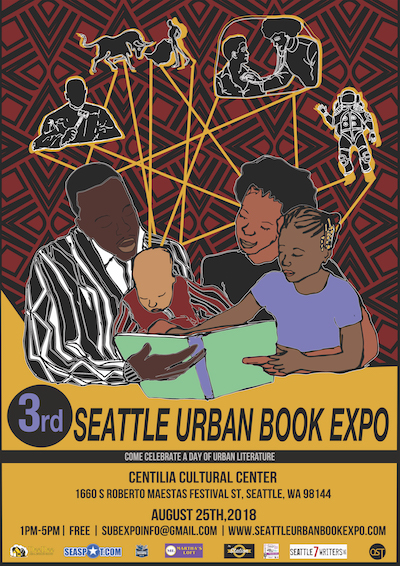
Last year, I interviewed Seattle author J.L. Cheatham about the second edition of the Seattle Urban Expo — his celebration of Seattle-area authors of color and independent authors who often don't get attention in local bookstores.
This Saturday, August 25th, the third annual Seattle Urban Book Expo happens on Beacon Hill. Cheatham plans the expo to be a big party, with food and kids' activities and all sorts of fun events that are intended to keep audiences there for a while. The second expo nearly doubled in size from the first, and the third looks to be the biggest, best one yet.
Don't know what to expect? Donna Miscolta reviewed the Seattle Urban Expo for us. She said only one thing was missing:
I was at the expo for an hour and a half. I think I counted two white people among the visitors during that time...Literary events too often center white writers. It happens in Seattle as it does elsewhere. Take for instance, the San Diego Festival of Books which also occurred last Saturday. Read Aaryn Belfer’s #bookfestivalsowhite. When a literary event centers writers of color, it’s an opportunity for white writers and readers to educate themselves about the lives and stories of black and brown people — an imperative in today’s racially charged climate.
If you're reading this and you're white, you should go and support an underserved community and learn about a whole group of writers who you don't see at literary events every week in Seattle. If you're a person of color, you should go and celebrate a more inclusive literary Seattle. No matter who you are, you should go.
Centilia Cultural Center, 1660 S Roberto Maestas Festival St,973-4298, 1 pm, free.
The Sunday Post for August 19, 2018
Each week, the Sunday Post highlights a few articles we enjoyed this week, good for consumption over a cup of coffee (or tea, if that's your pleasure). Settle in for a while; we saved you a seat. You can also look through the archives.
KEXP pays tribute to Aretha Franklin
There’s been plenty of great writing about Aretha Franklin published in the last few days, but my pick this week is John Richards and DJ Riz’s tribute to the Queen of Soul. When I turned on KEXP on Thursday morning, I knew immediately what the top headline was — and it felt right to hear it from them first. They created an essay from her songs, telling you what they thought and loved about her work, teaching you things you didn't know about her. You can stream it right here, if you aren't already (why aren't you?).
Fuck You, Death: Thoughts on Finishing My Friend's Last Book
This short piece by Anders Nilsen is punctuated by gorgeous illustrations — not by him, though; by his friend, the artist Geneviève Castrée. After Castrée‘s death, Nilsen took on the project of completing the book she’d been making while she was ill. Most of the work was small; a line here, a patch of color there. But Castrée had left one of the book’s most significant elements undone, and Nilsen had to negotiate a truce between their styles to finish it. His writing about the process is filled with humility, grief, and admiration.
I started working, intending to simply mimic her style as closely as I possibly could.
I couldn't. I tried painting them in gouache, I tried colored pencil, I tried drawing digitally in photoshop. It felt as though I was drifting further from the goal with every attempt. They at once failed to blend in with her own line and color, and also seemed to loom clumsily over it like a drunk uncle.
I draw things badly in my own comics all the time, and it feels extremely uncomfortable. Getting Geneviève's bubbles wrong in this particular book felt worse than criminal.
Fatal Naming Rituals
Poet Billy-Ray Bellcourt on how not to write about Indigenous writing, a tutorial on and a warning against description. The language of this is completely immersive, entangling, as aural as it is visual. Give it your time.
Say forgiveness. With a maw full of smoke, say the aftermath of history. Hold our books in your slippery hands with the ever-loudening fact of their eschewal of the violence of a reading practice that makes a feast out of "a choreography of mangled bodies." Mouth the word "enemy," but do not enunciate it, for it is not a subject position worth keeping in the world. Living as we do in the charred remnants of a time during which the voices of Indigenous peoples were siphoned out of the theatres of culture and into the wastelands of law and order, you, a white and settler you, are beholden to a project of lessening the trauma of description.
Hatebook
Facebook! So multitalented. While the massive social media company was quietly helping Donald Trump into power, they were also providing a platform for hate speech to incite violence against the Rohingya in Myanmar. A new report by Reuters explores the mechanisms by which Facebook failed to uphold its own standards for allowable “content,” despite full awareness of the extent and impact of the problem. Here, “impact” is a stand-in for “genocide,” and “mechanisms” is a stand-in for “unwilling to invest despite having every ability to do so.”
Keep in mind, we’re not talking about Facebook as we know it in America. We’re talking about a Facebook that has a specific goal of bringing the Internet to developing countries, not as a social good, but because doing so offers them a unique kind of dominance. As the report says, in Myanmar, Facebook “is the Internet.”
I know the Internet is really outrage-y right now, and I’m not encouraging you to feel outrage over this. I am encouraging you to feel deep anger, to ask what might be unforgiveable, and then to keep making decisions about the platforms you use that reflect the world you want to live in.
Many of the millions of items flagged globally each week – including violent diatribes and lurid sexual imagery – are detected by automated systems, Facebook says. But a company official acknowledged to Reuters that its systems have difficulty interpreting Burmese script because of the way the fonts are often rendered on computer screens, making it difficult to identify racial slurs and other hate speech.
Facebook's troubles are evident in a new feature that allows users to translate Burmese content into English. Consider a post Reuters found from August of last year.
In Burmese, the post says: "Kill all the kalars that you see in Myanmar; none of them should be left alive."
Facebook's translation into English: "I shouldn't have a rainbow in Myanmar."
(By the way — while “honey badger” might seem like a great name for a secretive operation to mop up hate speech — referencing an animal that relentlessly hunts down out prey living invisibly underground — does anyone believe staff at Facebook didn’t think of the old meme and chuckle to themselves? They truly don’t give a shit.)
Whatcha Reading, Sharma Shields?
Every week we ask an interesting figure what they're digging into. Have ideas who we should reach out to? Let it fly: info@seattlereviewofbooks.com. Want to read more? Check out the archives.
Sharma Shields is a Spokane-based novelist and short story writer. Her latest, The Sasquatch Hunter's Almanac won the 2016 Washington State Book Award in Fiction. Her short story collection Favorite Monster was published in 2012. And, soon to come: The Cassandra, a novel set in Hanford in the 1940s, coming in February of next year. It looks amazing — it would be a fantastic idea to pre-order your copy now!
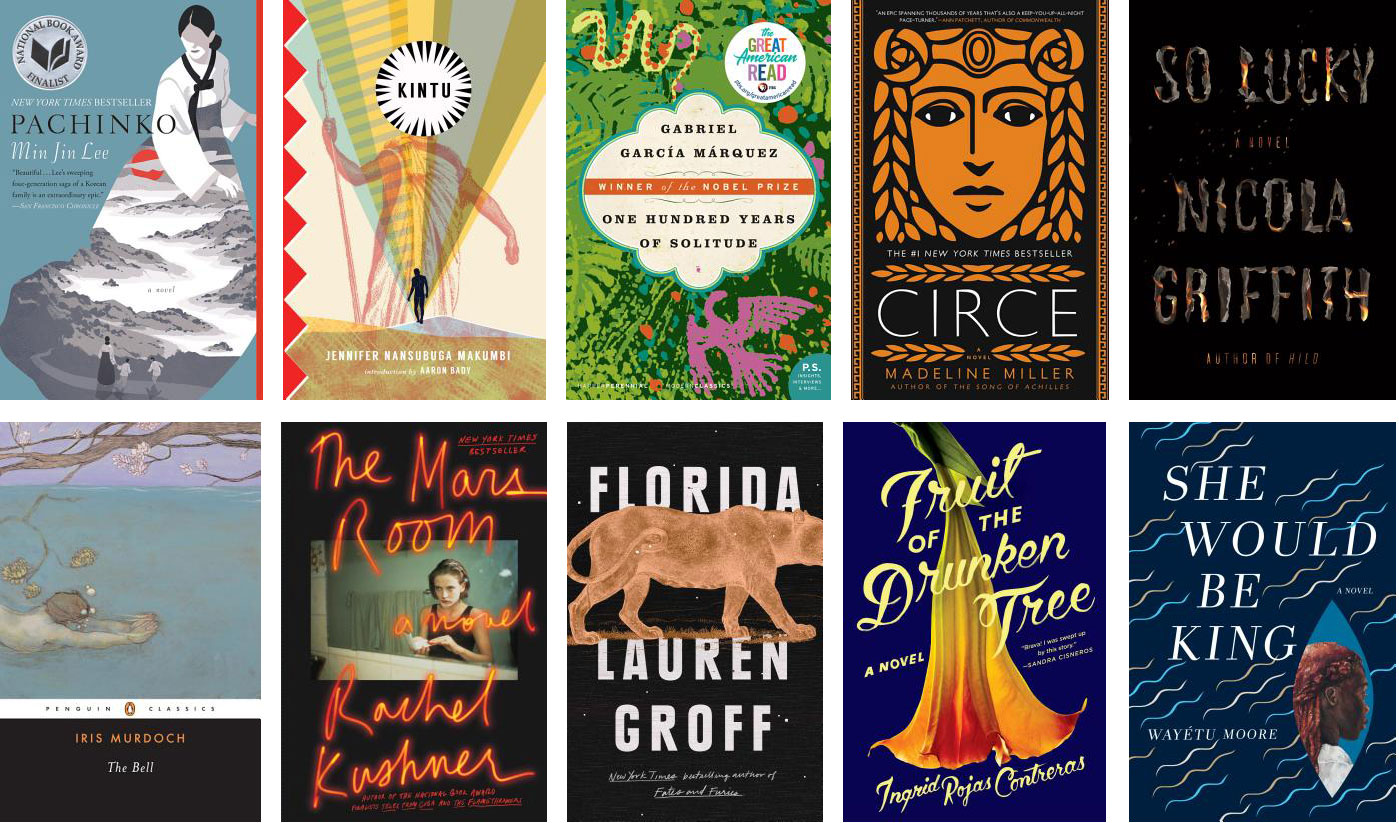
What are you reading now?
Pachinko by Min Lin Jee, a toothsome, engrossing, moving addition to the family epic, a category of literature I adore that includes Kintu by Jennifer Nansubuga Makumbi and One Hundred Years of Solitude by Gabriel García Márquez.
What did you read last?
- Circe by Madeline Miller — such a Greek myth pleasure bomb. The scene where Circe first turns men into pigs is awesomely, satisfyingly rendered.
- So Lucky by Nicola Griffith, a kickass novel about the monster of multiple sclerosis; this was an intimate, difficult, and ultimately bracing read for me given my own struggles with MS. Also — damn! — Griffith writes the most gorgeous sentences. Excited to read Hild, too.
- The Bell by Iris Murdoch. Murdoch never hesitates to straight-up imperil her characters. I relate so much to their vulnerability.
What are you reading next?
The Mars Room by Rachel Kushner, Florida by Lauren Groff. I've also placed on hold Fruit of the Drunken Tree by Ingrid Rojas Contreras and She Would Be King by Wayétu Moore (both will be published this fall).
The Help Desk: Bad dog
Every Friday, Cienna Madrid offers solutions to life’s most vexing literary problems. Do you need a book recommendation to send your worst cousin on her birthday? Is it okay to read erotica on public transit? Cienna can help. Send your questions to advice@seattlereviewofbooks.com.
Dear Cienna,
My dog threw up on a first edition my girlfriend loaned me from her dead mother’s library. I of course told her right away and apologized. She accepted my apology, but I still feel awful. I’m not much of a reader so maybe you can help. Is there something sweet and literary I can do to make up for it?
Chris, Chicago
Dear Chris,
My father used to tell me "the world isn't full of problems, it's full of opportunities" and while I didn't often listen to him – he had a severe drinking opportunity until the day he died – in your case, his advice is applicable. Here is what he would've recommended you do:
Take out a few of your most treasured possessions – Yeezy sneaks, CPAP machine, whatever the kids are into these days – and line them up on your coffee table. Then invite your girlfriend over, cook her favorite meal, and lace it with ipecac. Seconds to minutes later when she begins to projectile vomit, point her at the lineup and let her go to town. Immediately afterward – this is important – kiss her firmly on the mouth without flinching and offer to split a handle of Tito's with her.
However, if you've never lightly poisoned a loved one before and don't think you have the stomach for it (HAHAHA), I suggest looking for an upcoming reading or literary event that she might enjoy and buying tickets to it.
Kisses,
Cienna
Mail Call for August 16, 2018
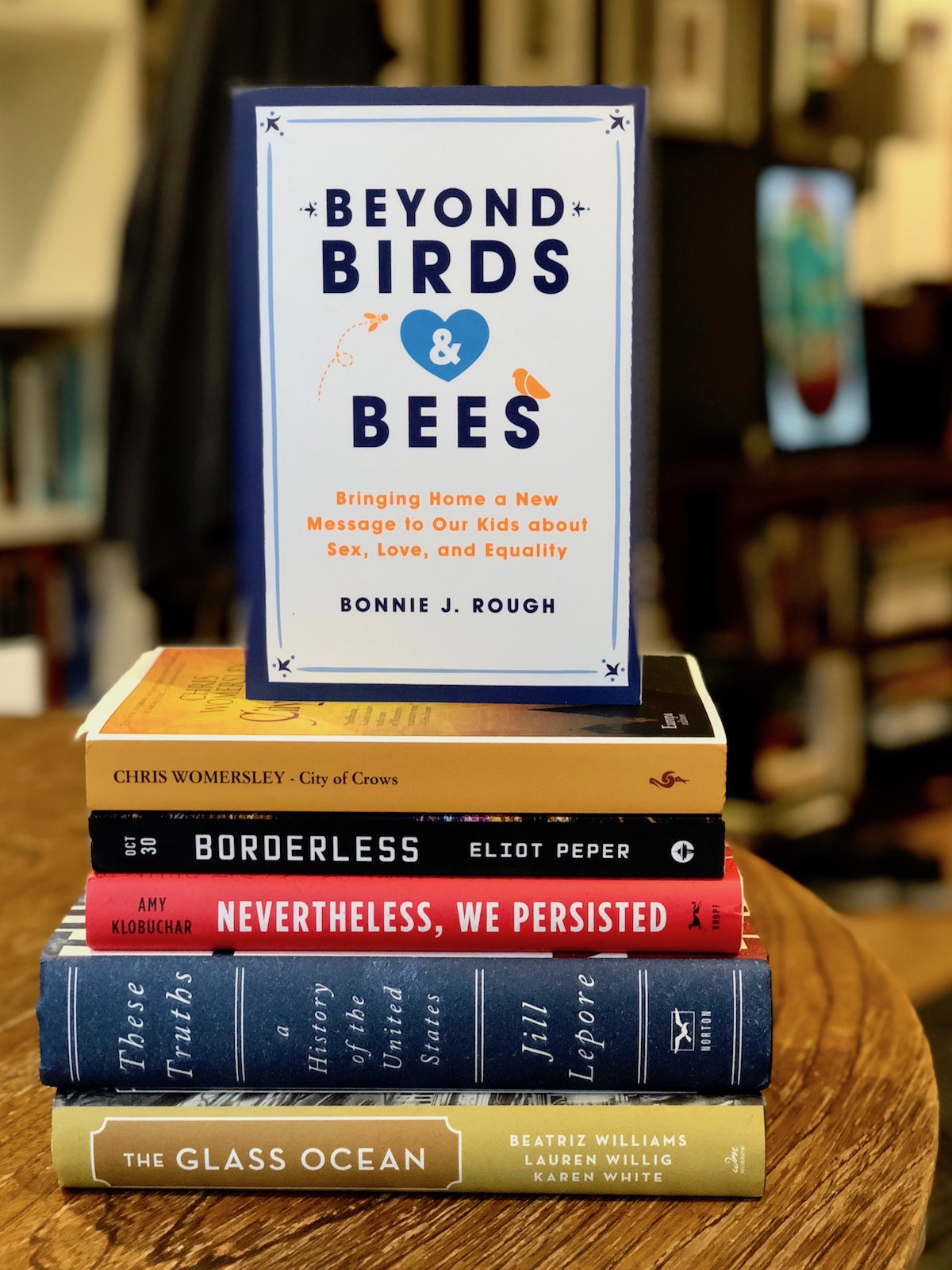
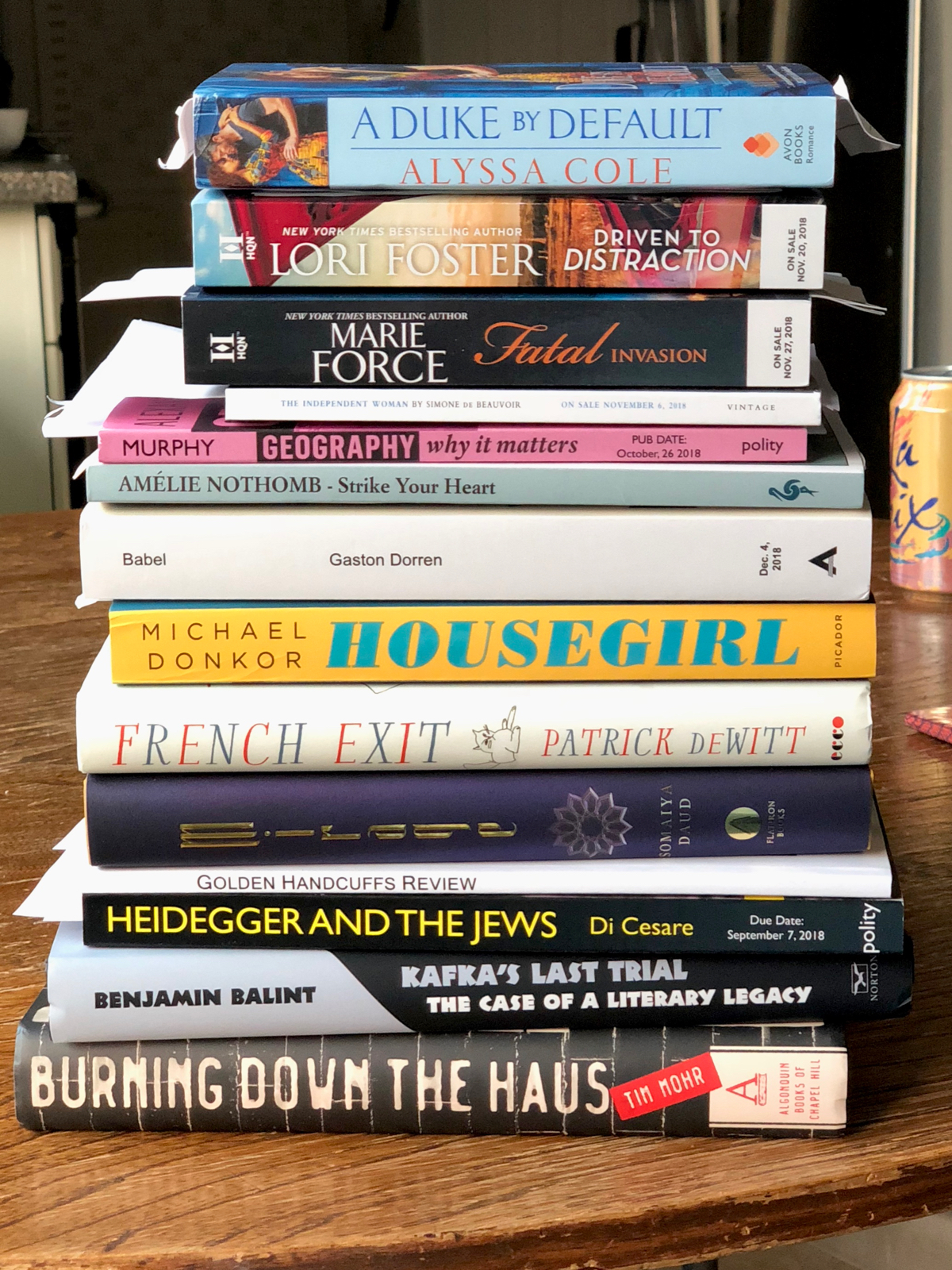
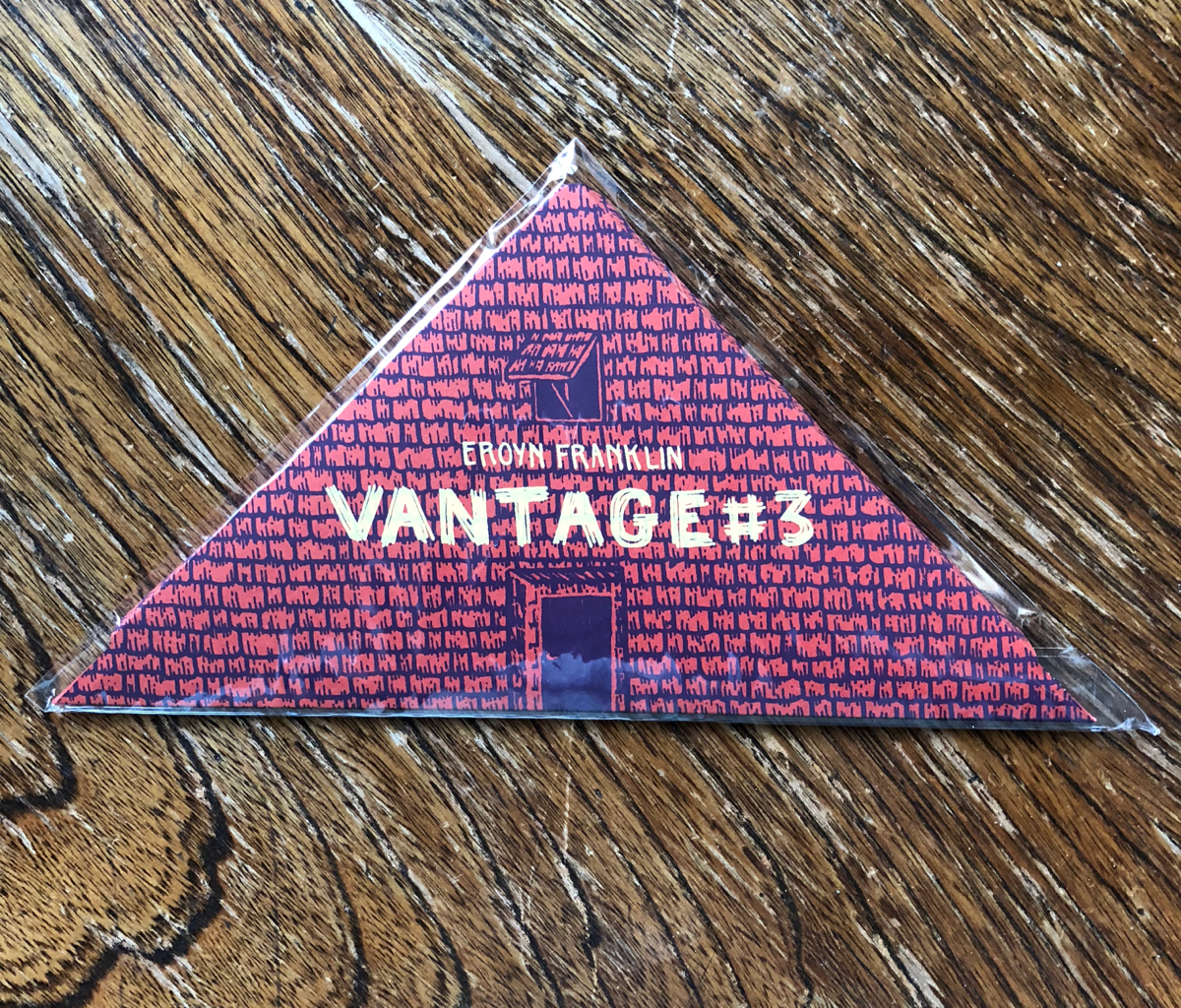
The Seattle Review of Books is currently accepting pitches for reviews. We’d love to hear from you — maybe on one of the books shown here, or another book you’re passionate about. Wondering what and how? Here’s what we’re looking for and how to pitch us.
Portrait Gallery: Julia Child
Each week, Christine Marie Larsen creates a new portrait of an author or event for us. Have any favorites you’d love to see immortalized? Let us know
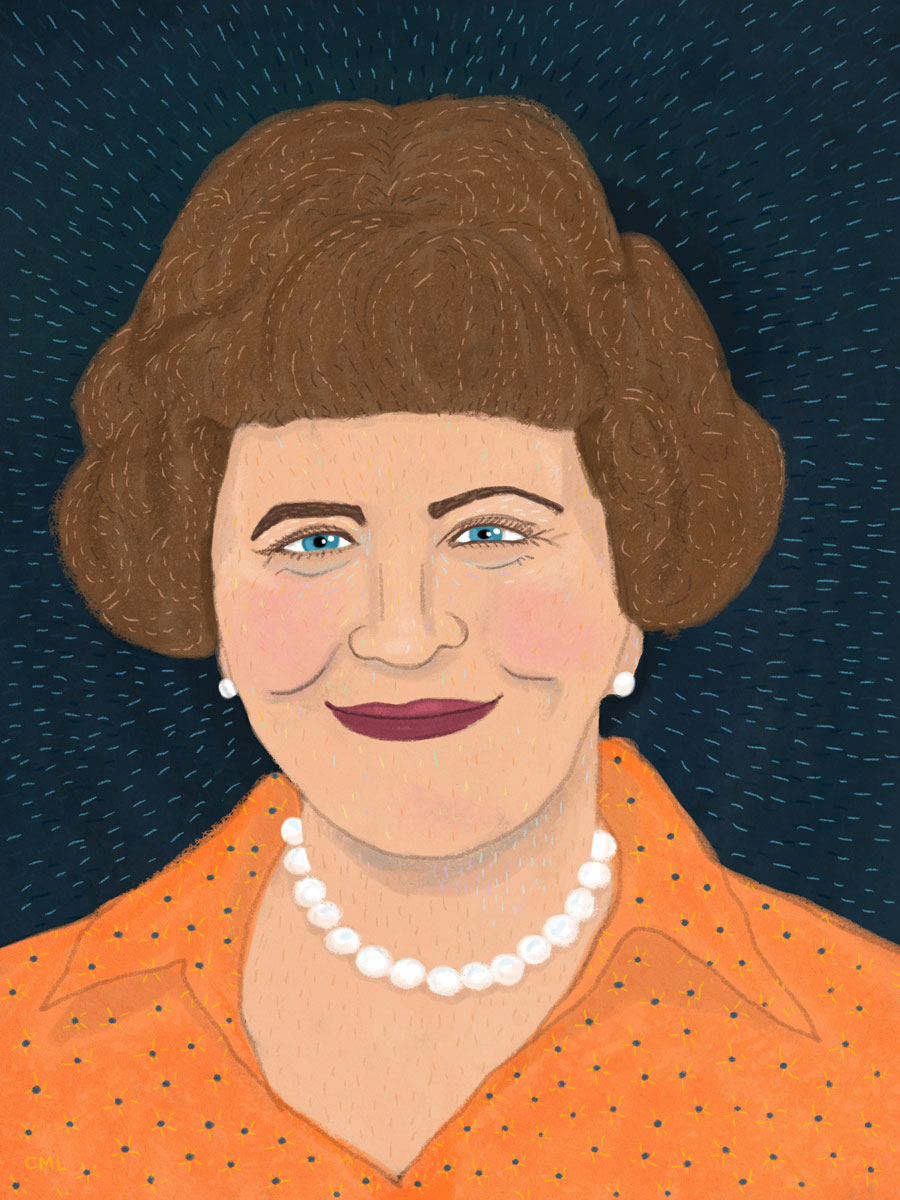
This week marked what would have been chef and author Julia Child's 106th birthday and the 14th anniversary of her death. 1912-2004.
Book News Roundup: Save the date for the Hugo House's big grand opening
The Hugo House has released information about its official grand re-opening. The party starts at 5 pm on Saturday, September 22nd. It will feature Maria Semple as host; performances from the Vis-à-Vis Society and the Bushwick Book Club; readings from Anastacia-Renee, Quenton Baker, Nicole Hardy, Kristen Millares Young and Amber Flame; and an after-hours dance party.
Seattle writer G. Willow Wilson has announced the publication date and subject of her second novel:
I wrote you a love letter set in 15th century Spain. My first book-without-pictures in 5 years and first book for adults in about as long. It comes out March 12, 2019. You can pre-order here: https://t.co/pmFrEkzH1G or here: https://t.co/ARImaKVyFS pic.twitter.com/uZdYxVYBn3
— G. (@GWillowWilson) August 15, 2018
- GeekWire published a great profile of local sci-fi writing organization Clarion West's summer education program:
Ultimately, Graham said, Clarion West is a test of commitment. “I think that’s what we do best, is we help students get to that place where they are ready to launch a career, they are ready to make writing a huge part of their lives,” Graham said.
Thursday Comics Hangover: Pearl, with irritation
Brian Michael Bendis's creator-owned comics are often very strong, but they're also often plagued with extensive publication delays that leave audiences annoyed. (What's up, Scarlet? It's remarkable that a writer as prolific as Bendis — he often juggles four monthly titles, in addition to special projects and a teaching gig — falls down on the job as much as he does.
The shame of it is, these books are usually his best work. Scarlet, in particular, started out as a great Occupy-themed commentary on income inequality. Then it was delayed so long that it felt like a timely statement on police shootings. And who knows how many other hot-button issues it will glide by on its glacial pace to completion?
Honestly, I wish I didn't have to begin this column with a huge asterisk, but Bendis has failed so consistently to finish what he starts with his creator-owned property that buyers should beware.

So with all that in mind, I like the first issue of Bendis's new creator-owned book with Michael Gaydos, Pearl. It's the story of a gifted young tattoo artist who accidentally becomes the pawn in a seedy underworld power play. The book opens in a San Francisco food truck parking lot, when a young man notices the gorgeous spider tattoo on Pearl's wrist. Violence ensues soon after.
It's pretty obvious that the book is going to be an investigation of tattoo culture. And it's also obvious that the creators have done their research; the credits list Diego Martin as "tattoo designer." This seems like a natural match with comics, which is the only medium that can really engage in a conversation with tattoo artistry.
Gaydos's art is becoming more and more minimalist as the years continue. He's one of those cartoonists who can relay a complex emotion — say, arousal combined with wariness — in something like five lines. And in Pearl, he's playing with color in some very interesting ways. When the food truck is attacked by gun-wielding mobsters on motorcycles, the book's whole color palette shifts from a slick damp-city-at-night sheen to a day-glow mix of sickly greens and muddy reds, with bits of tattoo flash added in the margins for additional emotional intensity.
As perfectly as the coloring captures the emotional intensity of that sequence, I do wish that Gaydos had been a little more specific in his action sequences, though. In the end, I have no idea who got shot by whom, aside from the main characters. Did everyone else die? How many people were involved? It's very unclear.
For those of you who take a chance on Pearl, it's very likely that you'll enjoy what you read. Even if the plot doesn't advance very far by the end of the issue, Gaydos's artistry alone is very gawk-worthy. But will there be a Pearl issue # 2 on comic shop shelves before we all die in a Trump-inspired nuclear holocaust in the late summer of 2020? I can't confidently place a bet either way.
Erin Bartnett's account of the "Book Boyfriend Box" at Electric Literature is way more sordid than you're expecting. (Be warned: There is a NSFW photo at the link.)
Book News Roundup: Residencies and jobs and himpathy
Jack Straw Cultural Center is now accepting applications for its artist residency series. Curator Kathleen Flenniken will choose a group of local writers who are eager to learn how to present their work orally — as public speakers and as audio recording performers. If you've ever thought about improving your reading skills, you should apply to this program.
And for the first time in a while, Jack Straw is hosting two workshops to discuss the artist residency program and to help artists with their applications. The 2018 curator, Daemond Arrindell, will host a workshop on Sunday, September 16th at 11 am. And Flenniken will host a workshop on Saturday, October 6th at 2 pm. Visit Jack Straw's site for more details.
Hooray for great Seattle poet and Seattle Review of Books contributor EJ Koh!
💛 My memoir THE MAGICAL LANGUAGE OF OTHERS will be published by @Tin_House in Winter 2020! pic.twitter.com/BPTWvdokwR
— E. J. Koh (@thisisEJKoh) August 14, 2018
If you'd like to support the arts in Seattle and get paid for it, Seattle Arts & Lectures is hiring a marketing coordinator!
I learned a lot by reading this Crosscut piece by Sarah E. Myhre on "himpathy," accused sexual assaulter Dave Meinert, and Dan Savage.
Talking with literary dynamo Kate Berwanger about why "it takes a boss-ass hustling queen to make it happen"
Every once in a while a new figure bursts through the walls of Seattle literary scene like some kind of superhero. The most recent shaker-upper, Kate Berwanger, founded the Assembly Literary Open Mic, a twice-monthly cross-town reading event that happens on the first Wednesday of each month at Screwdriver Bar in Belltown, and the third Wednesday of each month at Corvus and Co. on Capitol Hill.
But two readings a month weren't enough for Berwanger. She then launched a twice-yearly DIY show called Spring for Zines! and Fall for Zines! And that's just the beginning: Berwanger also launched a Kickstarter to present an ambitious slate of readings across Seattle all year long. She's interested in hosting women-fronted events that feature DIY and emerging literary artists.
Berwanger took some time out of her incredibly busy schedule to talk about her love of events and what she's working on right now. What follows is a lightly edited transcript of our discussion. If you'd like to support Berwanger's work, her Kickstarter is running for three more days.
I know you have your story on your website, but I was wondering if you could talk a little bit about your journey as a writer?
I've been writing for two decades — mostly short fiction. And I guess I don't really have a need to play the game. I'm not interested in seeking out a publisher, and being on the New York Times bestseller list and stuff like that. I self-publish my own fiction because I like keeping it DIY and grassroots. I would rather just have a dedicated handful of people that care about what I write, I suppose.
What is it about events that you like? Can you talk about the first event where you realized, 'I want to do this for the long haul?'
I think the first really big thing I did was a zine release party a year ago. I loved getting a group of people together who may not have gotten together on their own. And there are a lot of writers who aren't published who have a lot of really amazing things to say. Seattle has so much fucking talent, and I want to showcase that.
It sounds like for you, hosting events is a way to create community.
Yeah. Writing is solitary. But there's a lot of cross pollinating that happens when you have indie events, because you bring in different artists or readers who have a different following who may not have met each other otherwise. This is how we make friends and this is how we cultivate community — by building together on top of what already exists.
What do you think Seattle could do to improve that spirit of community?
It's not necessarily one cohesive community here. For writers, it's a disjointed Venn diagram where there's a bunch of — I don't want to call them cliques, but there's a lot of small communities and they all bunch together.
Founding Assembly has been a really incredible experience, because there are so many platforms that exist for performative work or spaces for people to share polished pieces. But Assembly is full of people who write, but don't necessarily identify as a writers. What's so special about it is it's an open and inviting space for people to share their work who want to get better. It gives people the opportunity to improve their craft and make new friends and cultivate community. It's like my baby — a really, really beautiful, open group of folks.
How do you see your events relating with, say, Short Run, which also has a pretty strong zine component?
I tabled at Short Run last year. It's very well known, and a huge event. I feel like Spring and Fall for Zines are kind of Short Run's distant cousins. Our last event, we had 30-some vendors. We have 40 this time. And there is some overlap — a lot of the people who table with us have been involved in Short Run, but there are also people who are maybe just getting into zines, too.
Can you think of any examples of the DIY scene in Seattle right now that are especially interesting or exciting? Any new artists who the readers of the Seattle Review of Books might not know about yet?
Are you familiar with Poseurs?
No.
Emily Denton started a pay-what-you-can yoga program. And she puts out a zine — I think monthly, now. My thing is if you want something to happen and it doesn't exist, you have to create it. It's not easy — it takes a boss-ass hustling queen to make it happen. I feel like Emily's done really well at that.
And then on August 26th, you're kicking off a new reading series titled Surreal Storytelling with Strange Women, and the readers include Meredith Clark, Vivian Hua, and Anastacia-Renee. Can you talk about the thinking behind the reading?
I'm really into surreal fiction. Are you familiar with Aimee Bender?
Oh God, I love her. She's a fantastic writer, one of the greats.
Yeah, she's a big reason why I'm doing this. I'm really into magical realism, specifically written by women. I want this to be an evening of weird, strange storytelling fronted by women. The first part of this series is going to be experimental — I don't even know what I'm doing. I'm just going with it, trying to learn from it. But that's okay. It's Seattle, right? Everyone's going to eat it up. It'll be amazing.
Over in the Comics Journal, Fantagraphics associate publisher Eric Reynolds offers a nuanced discussion of Amazon from his perspective as a publisher, a Seattleite, and a human being in the world today. Reynolds acknowledges that Amazon does some good, but he also thinks that if we don't take them seriously, we could be setting ourselves up for disaster:
At this point they’re not going anywhere, and if we don’t stem this rising tide somehow, it’s not going to get any better. It’s like global warming. It’s like Amazon is the global warming of the American economy. We’re reaching the point where we might be able to minimize some of the damage one way or the other, but this is happening.
Please go read the whole interview.
The nothing in the white robe
Published August 14, 2018, at 11:55am
Spike Lee's film BlacKkKlansman arrived in theaters on the same weekend that a white nationalist rally gathered in Washington DC. How should we deal with American Nazis?
The Citizen
apologies to Wallace Stevensone must have a mind of silly putty
acquiesce not
interrupt combust at 35 one leaps
the other lies deciding’s not for us
one must have a mind
of anecdote not data point must
never mind the grope
one must have a mind of
antelope one must have a mind
of wind of pantyhose one mustn’t
mind the mess or make a fuss
must mine the hive believe the lies
one must have a mind at least one
must
Mark your calendars for an inspired pairing!
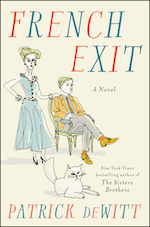
All well and good. But we'll go you one better: deWitt is touring with the book, and his Seattle stop pairs him with Maria Semple. The two will share a stage at the Central Library on September 6 for a conversation about — well, we'll be happy to hear those two talk about almost anything. They're both fiercely funny, but like deWitt's novels, slightly askew.
Check out more information from this week's sponsor, The Seattle Public Library, on our sponsor’s page. Then put this event on your calendar — hard to believe it's free! You can buy a book while you're there to say thanks for a wonderful night.
Sponsors like The Seattle Public Library not only keep our readers in the know about upcoming events of interest — they support the great writing about books that you see here every day. Got an event, a book, or a residency you'd like to promote? Our 2018 sponsorships are almost sold out, but move fast, and you can reserve a slot before they’re gone.
Your Week in Readings: The best literary events from August 13th - August 19th
Monday, August 13: Thrilling Tales After Dark
The Seattle Public Library's story time event for grownups continues with a special reading of the short story "End of the Day," by Jane Speed. The quote supplied by the library from this story is as follows:I swear, I’d lose my head if it wasn’t connected to my shoulders! Now where on earth did I put my husband?Seattle Public Library, 1000 4th Ave., 386-4636, http://spl.org, 7 pm, free.
Tuesday, August 14: DIY Resistance Reading
Portland author Anthony Alvarado's DIY Resistance: 36 Ways to Fight Back explains ways to defend values, protect communities, and find like-minded people in these Trumpy times. Alvarado is also the author of a book about creativity, so don't expect your standard litany of policy points, here. This should be a vibrant book and event. Elliott Bay Book Company, 1521 10th Ave, 624-6600, http://elliottbaybook.com, 7 pm, free.
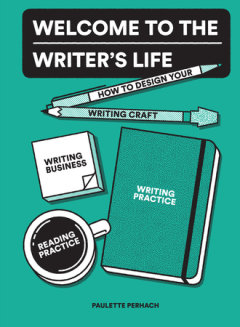
Wednesday, August 15: Welcome to the Writer’s Life Reading
If Welcome to the Writer's Life is as funny and disarming as author Paulette Perlach's website, you're in for a treat. Underneath a positively glowing "about the author" section on her site is a section explaining all the high-profile magazines that have rejected her writing over the years and the great sentences "She is a four-time submitter to the Jack Straw Fellowship. She thought the Pulitzer Prize was the Pullit Surprise until she was like 17. At age 28, she attended an 8-month writing residency in her mom’s downstairs bedroom." Tonight's book launch party features a "Bad Author's Photo Booth" with lots of pretentious props like berets and quills and such. Sorrento Hotel, 900 Madison St., 622-6400, http://hotelsorrento.com, 6 pm, free, 21+.Thursday, August 16: The Great Alone Reading
Incredibly popular author Kristin Hannah returns with a new novel about a former POW who moves his family to Alaska to get off the grid. Hannah will be joined in conversation with Washington author Megan Chance. Third Place Books Lake Forest Park, 17171 Bothell Way NE, 366-3333, http://thirdplacebooks.com, 7 pm, free; signing with purchase of book.
Friday, August 17: Rising Reading
Elizabeth Rush's new book is titled Rising: Dispatches from the New American Shore. It's about the coastline that will develop after global warming has its way with our polar ice caps. It's not cheery subject matter, but for God's sake we've got to get serious about this stuff, right? Elliott Bay Book Company, 1521 10th Ave, 624-6600, http://elliottbaybook.com, 7 pm, free.Saturday, August 18: Economic Utopias and Dystopias
See our Event of the Week column for more details. Tashiro Kaplan Artist Lofts, 115 Prefontaine Place S, https://www.eventbrite.com/e/economic-utopias-and-dystopias-tickets-48071143083, 1 pm, free.Sunday, August 19: #Murdertrending and Pyromantic Reading
Gretchen McNeil is the author of comedic young adult novels including I'm Not Your Manic Pixie Dream Girl. Her newest is a funny horror book titled #Murdertrending. Seattle writer Lish McBride has written a bunch of series for young readers. Pyromantic is the second in a new series that started with the book Firebug. University Book Store, 4326 University Way N.E., 634-3400, http://www2.bookstore.washington.edu/, 3 pm, free.
